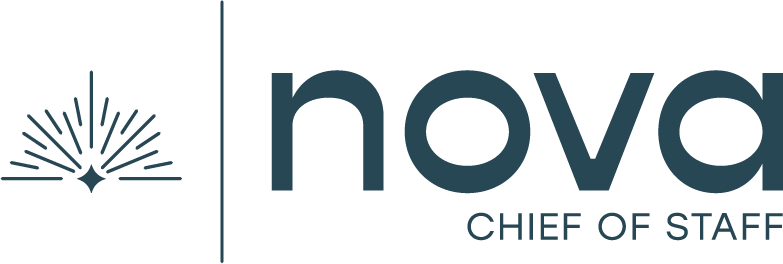Nova Founder Maggie Olson on Neurodiversity
Have you ever felt... different? In ways you can't explain or ways you can. You just operate differently from those around you (and maybe it feels like you're different from the rest of the world). In some smaller ways, I feel different.
Navigating Sensory Sensitivities
More than most people in my daily life, I'm very noise-sensitive and light-sensitive. I get overstimulated and "at capacity" quickly with certain sounds and noise levels, and you won't catch me anywhere in bright, sun-lit spaces (even if inside) without sunglasses on.
My brain is often in overdrive, analyzing, ideating, and producing at a rapid pace. To cope, I've developed daily rituals to slow myself down. These experiences are not unique to me. Many of you may find them relatable.
Neurodiversity vs. Neurodivergence: A Spectrum
Neurodiversity is ever-present because no two brains function identically. Some of us may have minor differences that still allow us to function within today’s societal standards, while others may have more pronounced differences that make it challenging to fit into 'typical' environmental norms.
I don't use the term "neurodivergent" to describe myself because this term typically refers to someone who has a more challenging time operating in today’s societal constructs. And, because "neurodivergent" most often refers to folks with cognitive variations such as Autism, ADHD, dyslexia, dyspraxia, etc., which I do not identify with personally.
Think of neurodiversity as a wide range of colors in a spectrum, where each color represents different ways our brains can work. Neurodivergence, on the other hand, describes colors that stand out more brightly, sometimes making it more challenging to blend into the typical expectations of society.
The more we can identify our unique neurodiversity, the more we can relate to others and understand that no two brains are alike. And the more we can understand that there's no "correct" way for our brains to work. We are all so different.
Insights from a Nova Chat about Neurodivergence
In mid-August, we hosted a 90-minute Nova Chat webinar themed around Neurodivergence in the C-Suite. Our amazing panelists included Eliana Bravos, Sydney Elaine Butler, and Jessica McBride, all of whom identify as neurodivergent and have experience in a C-Suite environment or building companies supporting neurodivergent folks. We discussed a variety of topics, including:
Personal experiences with ND at work
C-Suite leadership support or lack thereof
Neuro-inclusion, intersectionality, and masking
And much more, including available resources for ND folks
This event was sponsored by Mentra, which is on a mission to bridge the gap between neurodivergent candidates and recruiters, building the ND community along the way.
One of the biggest takeaways from the event was leadership’s responsibility to help everyone–neurotypical and neurodivergent–thrive. Company leaders can do this by opening the conversation, listening to their people, offering flexible work environments, and staying connected to each team member’s diverse work experience.
It was incredible to hear that all three of our panelists realized they were neurodivergent during the pandemic. The ability to work from home in their own environments played a huge role in their diagnoses and their abilities to thrive in completely new ways.
Head over to our Nova Chats page and watch the recording of this webinar–you will learn so much. It was truly an honor to host such an important conversation.
Conclusion
Understanding and embracing neurodiversity is more than just acknowledging our differences. It's about actively fostering a culture where everyone can thrive regardless of how their brain is wired. As we continue to have these conversations, let's remember that our diversity is our strength. By supporting one another, we can create workplaces where everyone feels valued, understood, and empowered to contribute.
Follow me on LinkedIn for more observations about leadership and learning, and all things Chief of Staff.

